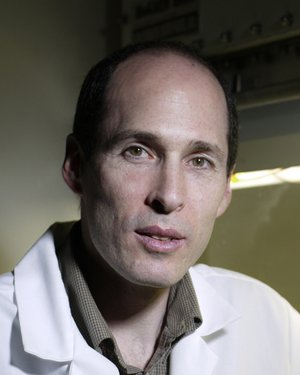Research Lab Results
-
Ryuya Fukunaga Lab
The Fukunaga Lab uses multidisciplinary approaches to understand the cell biology, biogenesis and function of small silencing RNAs from the atomic to the organismal level. The lab studies how small silencing RNAs, including microRNAs (miRNAs), small interfering RNAs (siRNAs) and piwi-interacting RNAs (piRNAs), are produced and how they function. Mutations in the small RNA genes or in the genes involved in the RNA pathways cause many diseases, including cancers. We use a combination of biochemistry, biophysics, fly genetics, cell culture, X-ray crystallography and next-generation sequencing to answer fundamental biological questions and also potentially lead to therapeutic applications to human diseases.
-
Andrew Lane Lab
The Lane laboratory is focused on understanding molecular mechanisms underlying chronic rhinosinusitis, particularly the pathogenesis of nasal polyps, as well as inflammation on the olfactory epithelium. Diverse techniques in molecular biology, immunology, and physiology are utilized to study epithelial cell innate immunity, olfactory loss, and response to viral infection. Ongoing work explores how epithelial cells of the sinuses and olfactory mucosa participate in the immune response and contribute to chronic inflammation. The lab creates and employs transgenic mouse models of chronic nasal/sinus inflammation to support research in this area. Collaborations are in place with the School of Public Health to explore mechanisms of anti-viral immunity in influenza and COVID-19.
-
Guang William Wong Lab
The Wong Lab seeks to understand mechanisms employed by cells and tissues to maintain metabolic homeostasis. We are currently addressing how adipose- and skeletal muscle-derived hormones (adipokines and myokines), discovered in our lab, regulate tissue crosstalk and signaling pathways to control energy metabolism. We use transgenic and knockout mouse models, as well as cell culture systems, to address the role of the CTRP family of hormones in physiological and disease states. We also aim to identify the receptors that mediate the biological functions of CTRPs.
-
Jeremy Nathans Laboratory
The Jeremy Nathans Laboratory is focused on neural and vascular development, and the role of Frizzled receptors in mammalian development. We use gene manipulation in the mouse, cell culture models, and biochemical reconstitution to investigate the relevant molecular events underlying these processes, and to genetically mark and manipulate cells and tissues. Current experiments are aimed at defining additional Frizzled-regulated processes and elucidating the molecular mechanisms and cell biologic results of Frizzled signaling within these various contexts. Complementing these areas of biologic interest, we have ongoing technology development projects related to genetically manipulating and visualizing defined cell populations in the mouse, and quantitative analysis of mouse visual system function. -
Michael Caterina Lab
The Caterina lab is focused on dissecting mechanisms underlying acute and chronic pain sensation. We use a wide range of approaches, including mouse genetics, imaging, electrophysiology, behavior, cell culture, biochemistry and neuroanatomy to tease apart the molecular and cellular contributors to pathological pain sensation. A few of the current projects in the lab focus on defining the roles of specific subpopulations of neuronal and non-neuronal cells to pain sensation, defining the role of RNA binding proteins in the development and maintenance of neuropathic pain, and understanding how rare skin diseases known as palmoplantar keratodermas lead to severe pain in the hands and feet.

